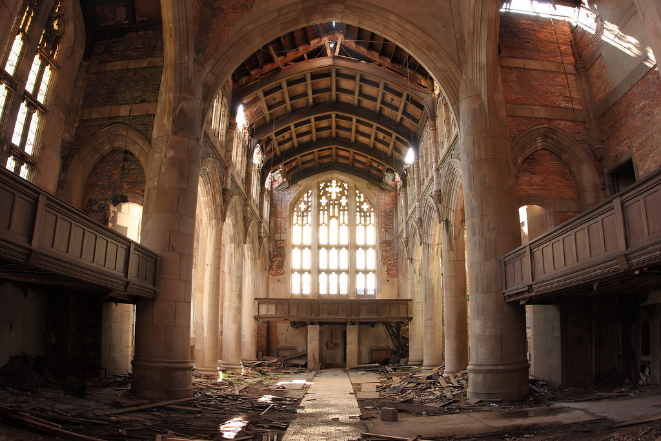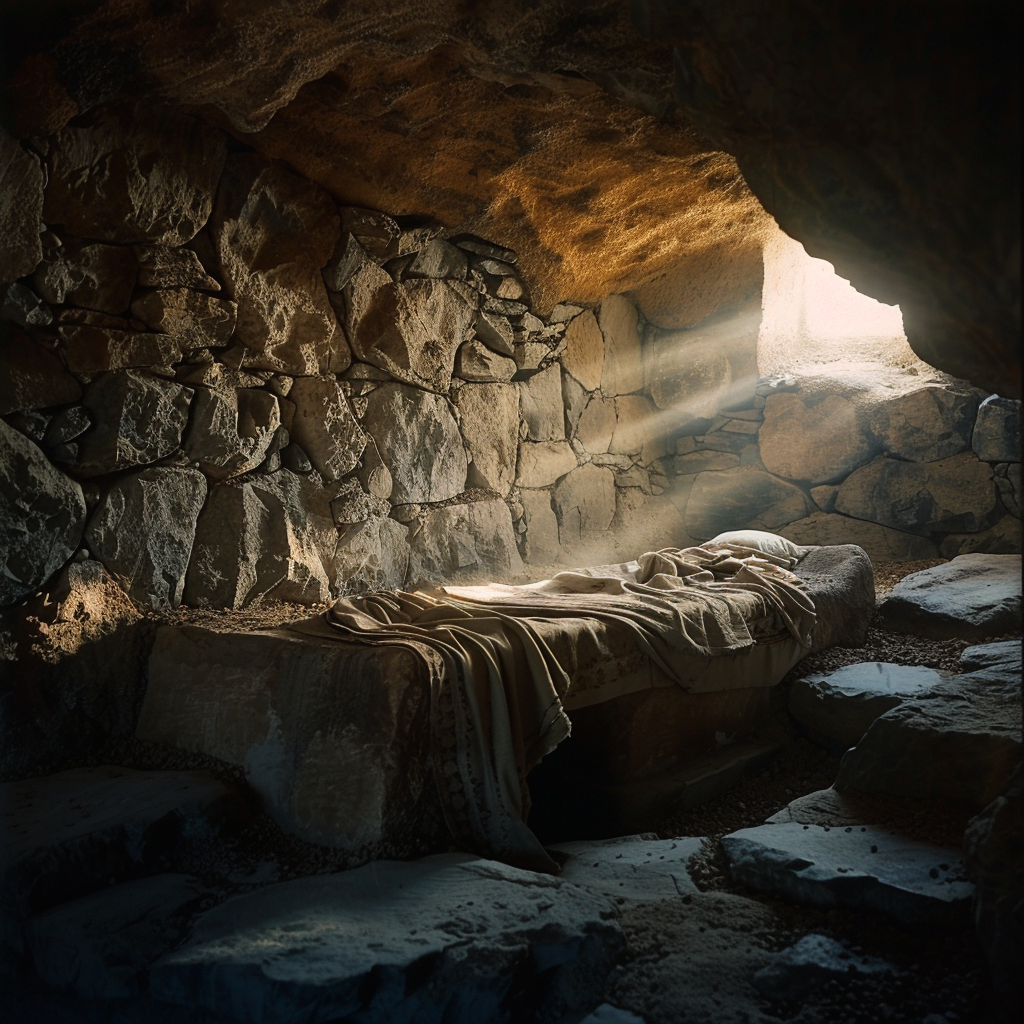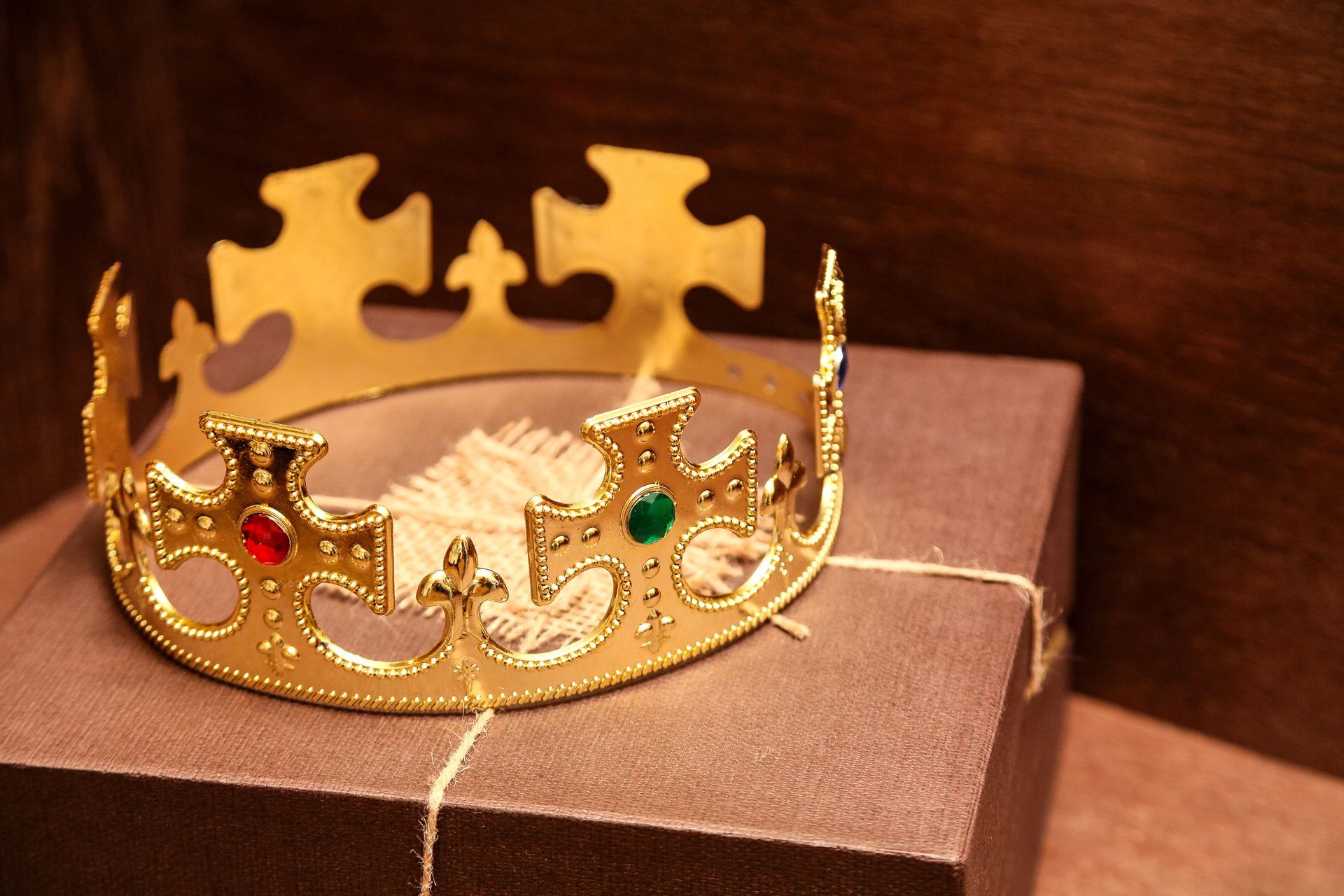Get in touch
555-555-5555
mymail@mailservice.com
2 Kings 22 - 23
Chapter 22:
The Book of the Law was Found, Josiah leads a Return to God
Josiah, son of the evil king Amon, was a good king, in fact, he was described in even more flattering terms than King David. He became king at age eight and reigned for 39 years. Verse 2, “He did what was right in the eyes of the Lord and walking in all the ways of his father David, not turning aside to the right or to the left.”
Josiah ordered his officials to repair the temple of the Lord
(verse 6). It must have been in a serious state of disrepair because it needed carpenters, builders and masons to do the job. It must have needed more than a cleaning and a fresh coat of paint. Probably looked more like this church in Gary, Indiana.

While the temple was being restored, the high priest, Hilkiah, found the “Book of the Law (verse 8). He gave it to Shaphan, the secretary, who took it to the king.
Shaphan informed the king saying, “Hilkiah the priest has given me a book.” And Shaphan read from it in the presence of the king” (verse 10). When Shaphan referred to the document as “a book” perhaps he didn’t recognize what it was. When the king heard the words of the Book of the Law, he tore his robes and ordered that his officials enquire of the Lord what is written in this book” (verse 13). Josiah understood the importance of the book, even if others didn’t.
What was this “book”? Scholars are in general agreement that it was the Book of Deuteronomy. Josiah knew that his people had ignored the Law. “Great is the Lord’s anger that burns against us because our fathers have not obeyed the words of this book” (verse 13). He knew the importance of this long-neglected book and the consequences for this neglect. Are some churches today equally guilty?
There was great fear that God would “bring disaster on this place and its people, according to everything written in the book” (verse 16). The king was quite aware of chapter 28 of Deuteronomy, which lists the blessings for obedience and the curses for disobedience.
Josiah consulted the prophetess Huldah, who assured him that the evil foretold in the document for non-observance of its instructions, would come, but not in his day. Verses 16, 19, 20, “I am going to bring disaster on this place and its people. . Because your heart was responsive and you humbled yourself . . . Therefore, I will gather you to your fathers and you will be buried in peace. Your eyes will not see all the disaster I am going to bring on this place”.
In the Southern Wall of the Temple Mount is a gate named after the prophetess Huldah, The Huldah Gate.
Why would the king go to Huldah rather than Jeremiah? Perhaps he was on a fishing trip and didn’t have any cell phone coverage. But, according to traditions, (speculation) it was because he believed that women are more easily stirred to pity than men and that she would be more likely than would Jeremiah to intercede with God on his behalf. But wasn’t Jeremiah known as “the weeping prophet” a highly emotional, sensitive individual?
Other traditions claim that Huldah was a relative of Jeremiah, both being descendants of Rahab by her marriage with Joshua. It is also taught that while Jeremiah admonished and preached repentance to the men, Huldah did the same to the women and she also taught publicly in the school. But, like all traditions, we shouldn’t take it all that seriously. What we have been given in scripture is and should be enough.
Maybe if Jeremiah was fishing, he might have come back with another tradition about the huge fish that he caught. But you just can’t trust fishermen, can you? Or traditions.
Chapter 23:
Josiah Renews the Covenant
Verse 1, all the elders of Judah and Jerusalem . . . went up to the temple with the men of Judah, the people of Jerusalem, the priests, and the prophets.” All the people of influence gathered in Jerusalem. I wonder if they knew what was on the agenda. It must have been really important for everyone who was anyone to come. They came to hear verse 2, “all the words of the Book of the covenant.” When the reading was completed, the king led the people in renewing the covenant. And “all the people pledged themselves to the covenant” (verse 5). Yeah, we heard that before.
The next step was to remove and destroy all the vestiges of pagan worship. From the descriptions given, it appears that everyone, when they returned home and even on their way home, went on a rampage of destruction. Like General Sherman’s march through Georgia during the civil war, leaving a path of destruction in his wake. They destroyed anything associated with the worship of other gods. Altars, Asherah poles, barracks used by the male shrine prostitutes, local sanctuaries, and high places were destroyed. All the priests of Baal were killed. He even had the bones of the dead priests of Bethel exhumed and burnt on their altars. Then he went back to Jerusalem (verse 20).
Josiah also reinstituted the Passover celebrations (verse 21). Oh, he also got rid of all the mediums and spiritists, the household gods and idols and all the other detestable things (verse 24).
God was very pleased with Josiah. 2 Kings 23:25, “Neither before nor after Josiah was there a king like him who turned to the Lord as he did - with all his heart and with all his soul and with all his strength, in accordance with all the Law of Moses.”
One commentator said that by echoing the words of the Shema found in Deut. 6:4-5, “Hear, O Israel: The Lord our God, the Lord is one. Love the Lord your God “with all your heart and with all your soul and with all your strength” places Josiah in a category all by himself.
By the time of Josiah, the power of Assyria had weakened. Assyria’s capital was Nineveh, the city that the reluctant prophet Jonah preached in. After they turned to God, they slipped back into their old ways. The Book of Nahum provides a follow up prophecy to the capital of Nineveh, telling them that the city and the nation was going to fall (Nahum 1:1-2;2:8). Assyria’s weakened condition allowed Josiah to take action to bring the people of Judah back to God. Chapter 23 he led the people in renewing their covenant with God.
2 Chronicles shed more light on the reign of Josiah. At Bethel he burnt the bones of the false prophets and destroyed their altar. Another prophet who lived during this time was Jeremiah (2 Chron. 34:3, 8). He was from a priestly family. Despite the reforms of Josiah, Jeremiah warned that they would go into captivity. The reforms were probably superficial and perhaps too little, too late. Meanwhile, as the power of Assyria was in decline, the strength of Babylon was on the rise.
Jeremiah’s prophetic ministry began in the reign of Josiah. Another prominent spiritual leader was the prophetess Hulda and the teacher Zephaniah. Each had their own area of responsibility. Hulda spoke to the women and Jeremiah to the men in the street, while Zephaniah preached in the synagogue.
After the reforms were made, Neco, king of Egypt, headed north to assist the Assyrians in their battle with the Babylonians (2 Kings 23:29: Chron. 35:21). Josiah joined the king of Egypt as they battled on the plain of Megiddo. In the mix Josiah got involved blocking the Egyptians at Megiddo, in the Jezreel Valley. This would give the Babylonians an advantage. Perhaps he wanted to assist the Babylonians because he knew that they would become the next great world power. It was there that Josiah was wounded in battle by Neco of Egypt and he died. (verse 29). Josiah’s servants brought his body in a chariot from Megiddo to Jerusalem and buried him in his own tomb. 2 Chron. 35:21-23 says that he died in Jerusalem, not Megiddo. Where did he die? Apparently, the Hebrew term translated “dead” could mean “dying or in a dying state.” He might have been mortally wounded in Megiddo but died in Jerusalem. Or, he might have died in Megiddo, but his death wasn’t “official” until he was declared dead in Jerusalem. It is like a modern obituary that states that a person died at the local hospital. The person may have died at home but was officially declared dead at the hospital.
Bible writers often recorded their material topically or climactically, and not necessarily chronologically. If you asked someone, “How was your day?” their recounting of events might not be in chronological order.
The people of the land took Jehoahaz, son of Josiah, and anointed him and made him king in place of his father (verse 30). But his kingship lasted a mere three months before the Pharaoh put him in chains and replaced him with his brother, Eliakim. The Egyptian Pharaoh changed Eliakim’s name to Jehoiakim and shipped his brother, Jehoahaz to Egypt where he died. The Pharaoh also imposed heavy levy upon the Jews (verse 33). Jehoiakim reigned for eleven years. Though from here on the kings of Judah had little power.
The defeat of Josiah at Megiddo was the end of Judah’s independence. His successors were short-lived and controlled by Egypt.
So, Josiah was the best king ever and reigned for 31 years. He died at the rather early age of about 39 years. Perhaps his death was an act of mercy. He was spared the distress of the coming Babylonian invasion.
Recent Articles

29 Mar, 2024
Purim is a Jewish celebration, more like the Fourth of July or Mother’s Day, than a religious holiday like Passover. Purin is usually observed in February or March of each year. The word Purim means, “lots” as in a lottery, which was the means that the villainous Haman, an Amalekite, used to set the date for the massacre of Jews in Persia (previously Babylon). These events in the Book of Esther take place between chapters six and seven of the Book of Ezra. The setting is Persia, seventy years after they were taken into captivity by the Babylonians. Israel spent 70 years in captivity in Babylon, which was later taken over by the Persians in 539 B.C. Just a year later, the Persian King Cyrus decreed throughout his empire that any captive Jews in Babylonia who desired could return to Jerusalem to rebuild the temple. Cyrus even allowed the vessels of gold and silver stolen by Nebuchadnezzar’s troops to be returned. As we will read in Isaiah 48 , they all should have left, but some stayed behind. Let’s look at the cast of characters in this drama. The villain in the story was Haman, an Amalekite. The Amalekites were descendants of Esau, Jacob’s brother. You might recall that these siblings had a long-standing conflict that revolved around the birthright. Esau, the firstborn, sold his birthright to his brother Jacob. The hostility that Jacob and Esau had for one another carried on through the generations like a bad gene. Esau had a grandson named Amalek, from which we get the name Amalekites. These cousins of the Israelites attacked them whenever they had the chance. When the Jews were led out of Egypt by Moses, the Amalekites attacked them in Rephidim, in the Sinai Desert. This unprovoked attack led God to promise to blot out the memory of Amalek from under heaven (Ex. 17:8-14) . Forty years later, in his last major speech to his people, Moses reminded the Jews of the command to go after Amalek (Deut. 25:17-19) . Saul, the first King of Israel, was commanded to wipe out the Amalekites (I Sam. 15:2-3) . But Saul disobeyed and spared the life of King Agag (I Sam 15:9) . This led to the premature end of the reign of Saul (I Sam. 15:23) . Saul, realizing his mistake, subsequently did kill Agag, but one of his sons survived. So not only was he disobedient, but he was also incompetent. Some 500 years later, one of his descendants was Haman. Others in the cast of characters included the royal couple, King Xerxes (some think it was King Ahasuerus or perhaps both names refer to the same person), and Queen Vashti. Then there was Esther, the Jewish maiden, and her uncle Mordecai. And so, with the setting in place, the cast of characters on stage, let the drama that led to Purim begin.
Share this:
Share
Tweet
Share
Mail
Start Here...
Why Study the Bible?
Don’t many consider the Bible to be just a book of myths? Why do we read the Bible rather than the sacred literature of other religions?
How do we know that it is from God? How do we know that what we have today is an accurate translation from the original? Is the Bible complete or have there been some books that have been lost?
We should be able to answer these questions, and there are answers! So start here!
Answers to Common Bible Questions

17 Dec, 2021
Lent is a six week period of spiritual devotion starting on Ash Wednesday and ending at Easter. Those who observe Lent usually give up something for Lent. Some might give up coffee, or soda pop, or alcohol, or chocolate. May I suggest that you give up something that will really impress God and make this season of Lent one of the most memorable and meaningful seasons of your life? May I suggest that if you are giving up something, why not give up some of the acts of our sinful nature mentioned in Gal. 5:19? Why don’t we give up lying about others? Do you think you can give up the hate you feel towards others? How about envy, can we work on putting envy aside this year? How about giving up on the naïve idea that all pastors are mature Christian leaders whose word should always be accepted, rather than wolfs in sheep’s clothing (Matt 7:15). How about giving up the idea that everyone in church is a real Christian (Matt 7:21-23). How about giving up your desire to seek revenge on those who have hurt you (Matt 18:21-22)? If you are insecure and feel threatened when you see the success of others in ministry, how about giving up efforts to hinder others who have been called to minister (Rom 12:4-8)? Of course it is easier to give up something like chocolate, etc. and make yourself feel like you are doing something that is pleasing to God. If you are not willing to give up unchristian behavior, might I suggest something that will really please God this Lent? Give up all evidence of your profession of Christian faith, such as books, pictures and jewelry. Don’t talk about God, Jesus or the Church. I think God would appreciate it if you would stop giving HIM a bad name by the way you live. Let’s give up what hinders our witness and become a better ambassador for Christ (2 Cor 5:20) this Lenten season.

17 Dec, 2021
In Matthew 2:1-2 is says that the magi saw "His star in the east." What was this star that guided these men to Jesus? Some have suggested that it could have been a comet, an asteroid, or perhaps a meteor or an especially bright star. The problem with these suggestions is that these physical things either quickly move across the sky and then disappear or are too far away to provide directions with any precision. It would be hard to get directions from such objects. The "star" had to move constantly or intermittently at the same pace as the magi. Then it says that it hovered over the house where Mary and Joseph had moved to with Jesus. It hardly sounds like a comet or meteor or a star as we know them. Can you think of another time that people in the Bible were guided by some form of light? How about the time when Moses was leading the Israelites out of Egypt? He didn't have a global positioning system with him. He did have a pillar of fire that led him at night (Ex 13:21-22). We see this light in Solomon's Temple (2 Chron 7:1-3) and when the Jews were about to go into Babylonian captivity, we see it leaving the Temple (Ezek 9-11). In the New Testament we see it at the birth of Jesus (Luke 2:9) at His transfiguration (Matt 17:5) and His ascension (Acts 1:9). What exactly was this guiding light? The word "star" can also be translated as "radiance." It appears that it was this "radiance" that guided Moses and the magi. The Jews call this the "Shekinah", a physical manifestation of the glory of God in the form of a supernatural radiance. This, I believe, is what the Star of Bethlehem was.

17 Dec, 2021
Imagine that you are the pastor of a church. A young married couple is having some difficulties in their relationship and they seek counsel from you. On Monday the wife comes in to give her assessment of their marriage. What do you think she will say? She might say that she is a hardworking, caring and supportive wife and that it is her husband who is the neglectful, insensitive brute and the source of all problems in the marriage. You feel so sorry for this wife and when you see her husband in the hallway, you think to yourself, "What a jerk." On Friday the husband comes in and gives his assessment of the marriage. He tells you that he is hard working and very generous and that she is the major problem in the relationship. As the pastor, you are wondering if they both are talking about the same marriage. Each person tells you what makes them look best and their spouse the worst. Where is the truth? The truth is probably somewhere in between Proverbs 18:17 says, "The first to present his case seems right, til another comes forward and questions him." There are conflicts in all relationships, between spouses, parents and children, employees and employers. When you hear one side of a story, don’t assume that what you hear is the complete truth. And don’t pass on to someone else what you have heard. Probably, at least some of what you heard is untrue to gain your support in a conflict.
Questions?
Send us your questions or comments. We respond to every message.
About us
Encouraging Everyone to Study the Word of God and do the Work of God.
Useful Links
Contact info
Join our family
Contact Us
Thank you for contacting us.
We will get back to you as soon as possible
We will get back to you as soon as possible
Oops, there was an error sending your message.
Please try again later
Please try again later
The Berean Bible Ministry
This web site is dedicated to the study of the Bible, with no advertising and no popups. It is supported by our Bible study group.




